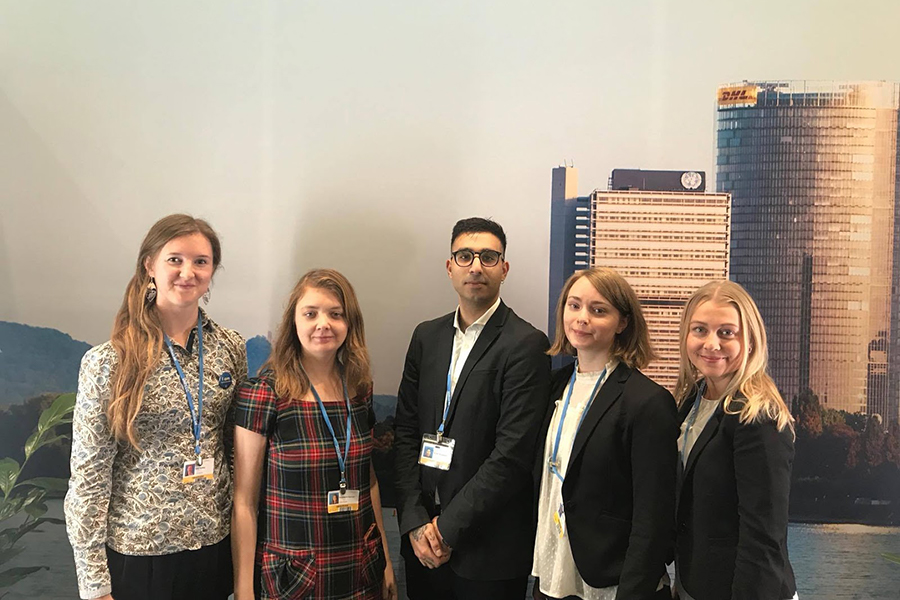The 23rd annual United Nations Climate Conference (COP23) has come to a close. An encouraging spirit is left for next year’s conference as participants worked hard to produce the rulebook for the Paris Agreement, and forward the Fijian concept of Talanoa.
Sara Nyberg, a Masters student in Environmental Engineering at Lund University Faculty of Engineering (LTH) and delegate for PUSH (Platformen där Unga Samarbetar för Hållbarhet) Sweden, a youth NGO providing a platform for young adults to work towards a sustainable future, is currently on exchange in Zurich, and reflects on her experience at the conference.
“Having already attended the intersessional talks this past May, I had a feeling for what it would be like to attend the conference. I expected that they would address the rulebook for the Paris Climate Agreement and focus on developing the procedures of the Talanoa dialogue which will be held next year.”
In an interview prior to the conference with Adam Leckius, also Lund University student and international coordinator for PUSH Sweden, he brought up the concern of COP23 being undermined as a lead into next year’s dialogue . Sara commented on this, concluding that despite the conference lacking media attention many of the participating countries came prepared with statements and initiatives.
“Not every COP is meant to produce something as exciting as the Paris Climate Agreement. Media attention is still important though because not only does it get more people involved, but it puts pressure on negotiators to have something to contribute and put forward.”
Addressing conflict of interest was at the forefront of PUSH Sweden’s objectives for the conference. PUSH Sweden members made an effort to make their voices heard, succeeding by making a statement put on record and to be considered for future conferences.
“One of our members, Ahmed Al-Qassam, made a statement that was actually put on record pushing for regulations on who gets to participate in the conferences. Companies with vested interest in the fossil industry, for instance, should not be allowed to participate in the conference as it creates a conflict of interest.”
Sara’s takeaway for university students is that action and empowerment are crucial.
“There needs to be more teaching about climate in education. Especially for University students, we need to know how to address climate change and how it happens. We were able to meet with Patricia Espinosa, executive secretary of the United Nations Framework Convention on Climate Change, who really encourages youth to keep pushing for climate action. She suggested starting local and staying small as the best way to start.”
With an overwhelming amount to do at the conference which was spread across two zones, Sara noted that there was much more to the conference than establishing the rulebook for the Paris Climate Agreement.
“There was also a Gender Action Plan and Local Communities and Indigenous People Platform put forward. They both look at how we can solve climate change with these minority groups in mind. Secondly, Fiji pushed through the name change of the formerly/ officially called Facilitative dialogue to be Talanoa dialogue, which will be held next year at COP24.”
Next year’s COP will take place in Katowice, part of Poland’s coal mining district. The conference will be the first to implement the Talanoa dialogue and will address progress in the Parties efforts relative to the long-term goals established in the Paris Agreement, as well as outline national contributions that have been prepared.









